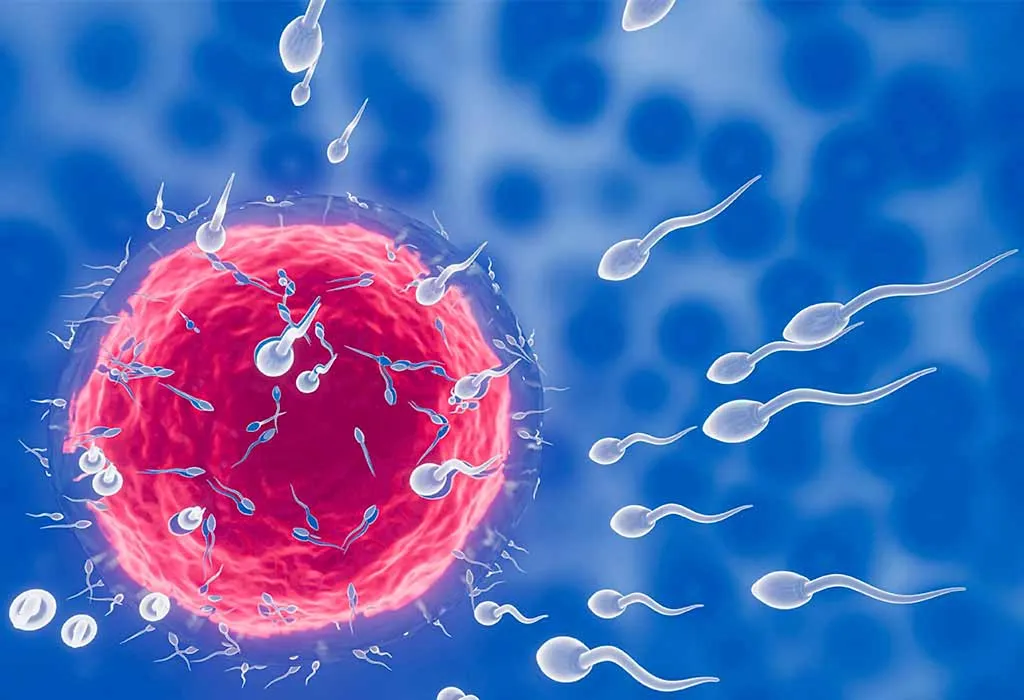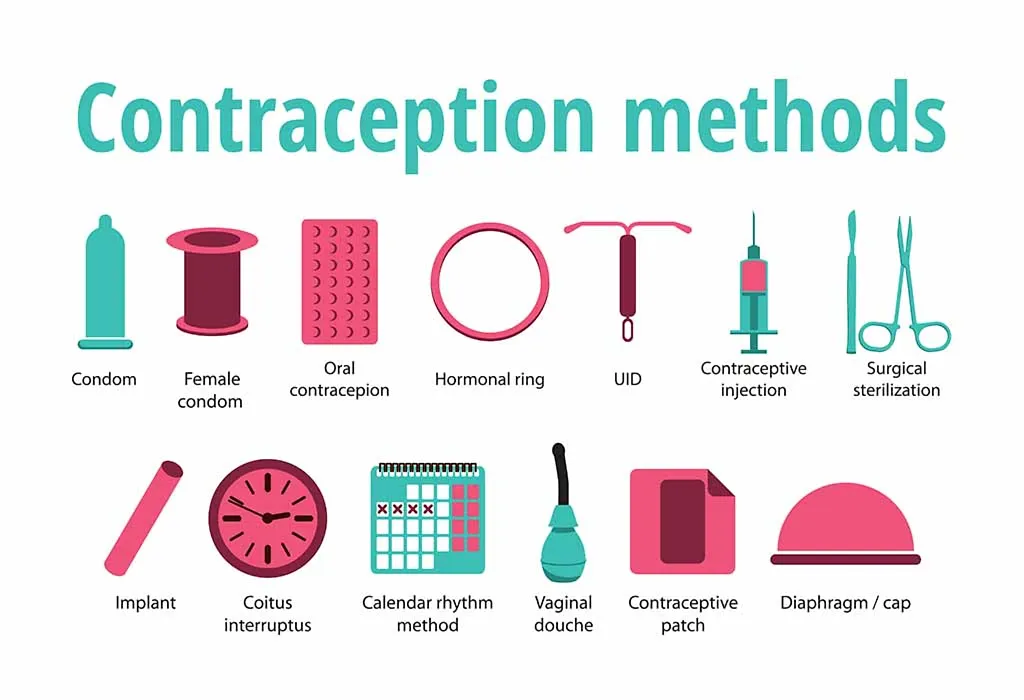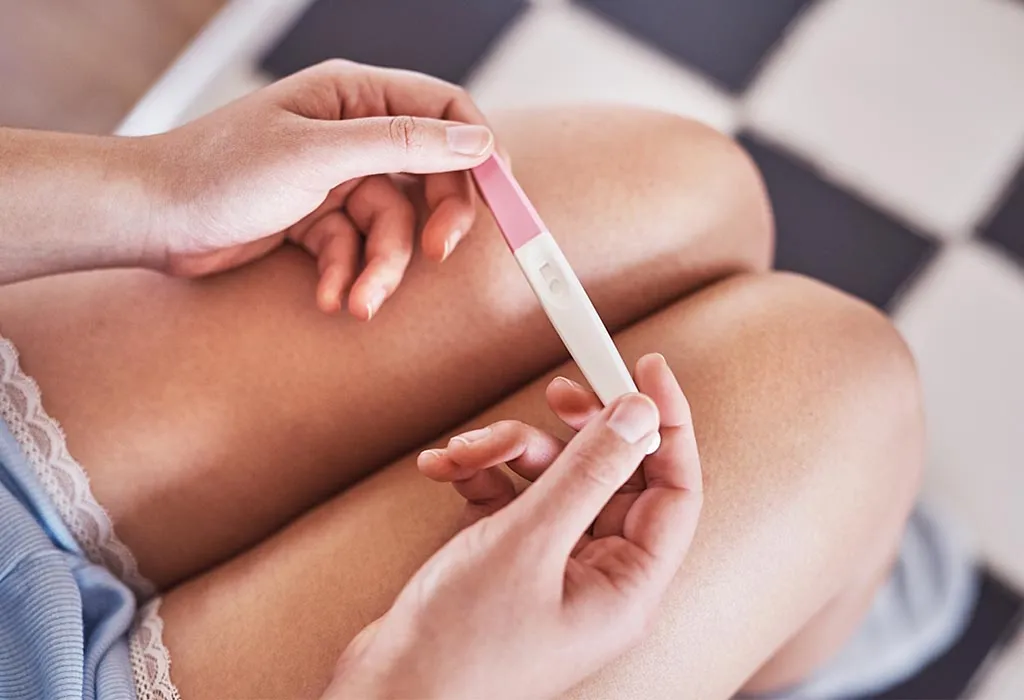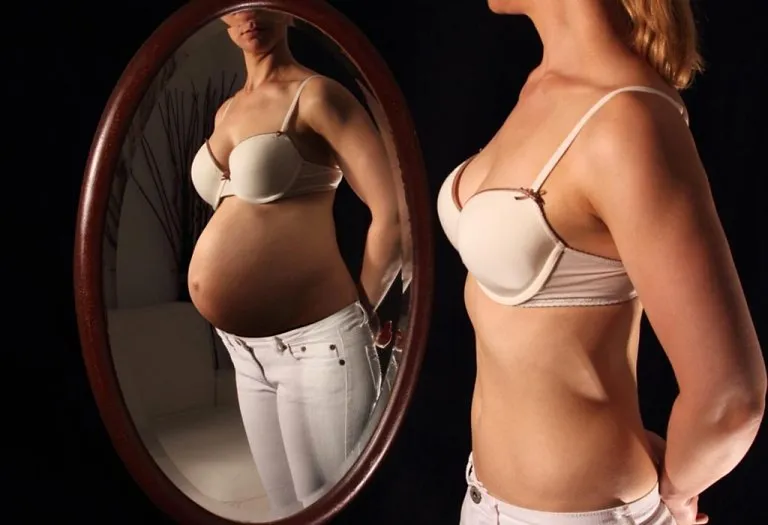Can You Get Pregnant From Precum: Know the Fact!
Know the real chances of pregnancy from precum and how to protect yourself.
- What Is a Precum?
- Is It Possible to Get Pregnant by Precum?
- What Are the Chances of Pregnancy From Precum?
- Can You Get Pregnant From Precum While You Are Not Ovulating?
- Best Ways to Avoid Getting Pregnant From Precum?
- When to Consider Emergency Contraception?
- When Should You Take a Home Pregnancy Test?
- FAQs
Contrary to mainstream belief, precum can cause pregnancy. The fact that precum does not contain any sperm but can cause pregnancy may sound dubious to many, but the chances of getting pregnant from precum exist, even if they are extremely low. Precum is something an individual cannot control; it is an involuntary fluid release that happens before an orgasm or ejaculation. Even if you try the withdrawal method right before ejaculation, it does not work as efficiently as other birth control options do.
So, can you get pregnant by precum? If they do, then what are the statistics? Join us as we uncover the truth and facts of one of the most misunderstood topics related to sex and pregnancy. We’ll also discuss several factors involved in unintended pregnancy, from whether you are using oral or physical contraceptives like condoms or birth control pills to the timing of ovulation. Stay tuned for some of the most mind-blowing reveals related to precum and pregnancy.
What Is a Precum?
Precum, or in medical terms, pre-ejaculate fluid, is a bodily fluid that is released involuntarily from the penis when they are sexually aroused during intercourse. It is released by two pea-sized glands, called bulbourethral glands, that are located between the prostate and the penis’ base. The main job of precum is to lubricate the way for semen to enter the vagina and protect it from the acidic environment of the urethra and vagina. The precum contains mucus and enzymes but no sperm.
While some men do not release any precum, some produce as much as 5 ml. Since the precum and sperm exit from the same route, any fluid releasing from the penis before ejaculation could be contaminated with sperm and should be regarded as potentially fertile (1). According to the American Pregnancy Association, most men, in fact, don’t even realise discharging precum during intercourse as they have no control over it (2).
These glands secrete an alkaline fluid containing numerous enzymes and mucus but no sperm. Despite this lack of sperm, current advice is that any fluid emanating from the penis prior to ejaculation could be contaminated with sperm and therefore should be regarded as potentially fertile and capable of resulting in an unwanted pregnancy
Is It Possible to Get Pregnant by Precum?
If you’re wondering “can pre ejaculate get u pregnant,” keep reading. First of all, we have to understand that precum originally does not contain semen, and even if it does, the sperm is usually dead or immobile. So, although it does not contain sperm, it is possible for precum to come in contact with the sperm while on its way out.
Confused about how? Let us explain.
After ejaculation, sperm can exit from the reproductive system and linger in the urethra. When, after the deposit of sperm, the precum exits through the same channel of the urethra, semen gets mixed with the precum and exits along with it.
The American Pregnancy Association says that pregnancy is highly unlikely with precum, but getting pregnant from pre-ejaculation is possible (2). A 2016 study revealed that about 17% of participants had mobile sperm in their pre-cum (3). It only takes one viable sperm to get past the cervix and fertilise an egg. With it mixed in the precum, pregnancy is possible.
For those who try the withdrawal method of pulling out before ejaculating during intercourse, it is still likely for precum to enter the vagina of your partner, which could cause unintended pregnancy. In fact, it is estimated in a 2020 study that around 20% of women who use the withdrawal method during sex will get pregnant in a year (4).
Peeing before indulging in sexual intercourse may help leftover semen to flush out that could have gotten missed with the precum.

What Are the Chances of Pregnancy From Precum?
The chances of pregnancy vary from person to person, their health status, and each sexual encounter. The current data on the withdrawal method tells that even if your partner does the pull-out method perfectly, the chances of pregnancy are relatively low, about 4 per cent. It is to be noted that precum or pre-ejaculation is still ejaculate and most likely contains sperm, so the likelihood of getting pregnant with precum is there.
Charted below are the precum and pregnancy odds in different scenarios:
| Scenario | Likelihood |
| During the fertile window | The fertile window occurs around the mid-cycle, a few days before and during ovulation. The chances of getting pregnant around the 6 days of your fertile period are likely high. |
| During menstruation | The chances of getting pregnant during the menstrual period are unlikely. However, you may become pregnant right after if the cycle is short and you ovulate early. |
| While using a barrier method like a condom | External condoms have an efficacy of about 82% at preventing pregnancy, while internal condoms do so with 79% (5). A diaphragm or cervical cap provides approximately 71-88% efficacy when used in conjunction with spermicide (6). |
| With an IUD | An IUD effectively reduces the chances of pregnancy to about 1%. |
| With a birth control pill | If taken correctly with an order, birth control pills are about 99% effective, and with typical use, they are only 91% effective. |
| After a vasectomy | The likelihood of getting pregnant after a vasectomy is about 1 in 2000 (7). After the surgery, experts suggest using a form of birth control until they perform a semen analysis, which is taken about 8-16 weeks after the vasectomy procedure. |
Can You Get Pregnant From Precum While You Are Not Ovulating?
Are there any possibility of getting pregnant with precum when not ovulating? Yes, you can get pregnant from precum even when you are not ovulating. How? Let us explain.
A sperm can stay active and alive inside the body for as long as five days. So, if a sperm goes inside your reproductive tract with the precum before you ovulate, it may still be there when you ovulate.
Ovulation starts around the middle of the menstrual cycle, anywhere from 7-14 days before the start of the next period. Now, as a sperm can live inside the female body for as long as five days, and you happen to have a penis-in-vagina sex regularly for 5 days before as well as on the day you ovulate, your chances of becoming parents get really high.
People with irregular menstrual cycles often have difficulty charting their ovulation and fertile days.

Best Ways to Avoid Getting Pregnant From Precum?
Now that we have established the answer to the question, ‘Can precum cause pregnancy?’, we need to find the most effective ways to avoid pregnancy due to precum. The best way to avoid getting pregnant from semen or precum is to use contraception or other birth control methods available. Since the pull-out method is not 100% effective, experts suggest exploring other forms of contraception for better protection. Here are some birth control options as suggested by the OASH (8):
- Barrier Methods: Male condoms are made of latex and create a barrier between a man’s penis, sperm, and the vagina. Other barrier contraceptives include internal condoms, diaphragms (cervical cap) and sponges. A diaphragm is in a cup like shape which is placed inside the vagina before and covers the cervix. It blocks the sperm from entering the cervix (9).
- Short-acting Hormonal Methods: Birth control pills, skin patches, shot, mini pills, and vaginal ring are considered under this category. Doctors prescribe birth control pills that are either progestin-only pills or combined with progestin and estrogen. These come in a 28-day pack, and you are required to remember to take one every day or month, at the same time.
- Long-acting Reversible Contraceptives: Intra-uterine devices and hormonal implants offer long-lasting protection. Doctors insert these once, and you are free from using birth control every day or month. LARCs can last for three to ten years, depending on the type of use. An implant is a thin rod that is inserted under the skin of the upper arm. It releases progestin into the body for three years.
- Injections: Progestin hormone injections are given by health experts either in the arm or buttocks every three months.
- Male and Female Sterilisation: Male vasectomy and female tubal ligation or occlusion are surgical procedures that prevent pregnancy for the rest of life.
- Natural Rhythm Methods: This method means tracking your monthly cycle to learn when you’re most likely to get pregnant. You avoid sex or use a condom on those fertile days. It works best for people with regular periods.
When to Consider Emergency Contraception?
If you prefer the traditional pull-out method without any other forms of birth control, you might worry about the chances of getting pregnant from precum. In such cases, you can use emergency contraception. The ‘morning after pill’ must be used soon after having unprotected sex, best if taken within 24 hours after the intercourse, for it to effectively prevent pregnancy (10). It will not work if you are already pregnant or if you wait to take it and start ovulating. If the sperm fertilises the egg before taking the emergency contraception, then it won’t be able to prevent pregnancy.
The emergency contraception mostly comes in the form of a pill called Plan B, which basically prevents the ovary from releasing the egg. It is safe and easily available over the counter. However, emergency contraception should be taken regularly as it contains high doses of hormones. A copper intrauterine device is the most effective emergency contraception that can be implanted to prevent pregnancy (11).

When Should You Take a Home Pregnancy Test?
Experts suggest waiting for the first day of your missed period to take a home pregnancy test (12). For more reliable results, you should wait until a week after your missed period to have a pregnancy test. Women with irregular periods should wait about 4 weeks to have a home pregnancy test.
False positives and false negatives are common if you don’t properly take the test, take the test too soon, or are on medications that could affect the results. Thus, you can apply for a blood test or a urine test at the clinic or hospital to confirm the pregnancy.
FAQs
1. Can precum be stopped?
Precum release is an involuntary action over which men don’t have any control. In fact, most men don’t even realise that they are discharging precum. Thus, it cannot be controlled but prevented.
2. Can you get pregnant from precum during your period?
The occurrence of pregnancy during your menstrual period is unlikely. This is because if you engage in unprotected intercourse during your period, you will usually have at least a week before your ovulation. On top of that, sperm typically for a maximum of 5 days. So, the chances of a sperm fertilising an egg will be low. Additionally, considering that precum usually lacks sperm, the likelihood decreases even further.
3. Can you get pregnant during your ovulation period?
Although the chances of getting pregnant during ovulation are low, it is possible. If you have started to ovulate and there is sperm in the precum, the chances of egg fertilisation are there. The best way to avoid pregnancy during ovulation is to use contraception during intercourse.
4. Can you get pregnant if you ‘pull out’ before orgasm?
Yes, the chances of getting pregnant by pulling out before you attain orgasm. This is because pre-ejaculation is involuntary, and most of the time, men don’t realise that they have pre-ejaculated (13). Since withdrawal takes a ton of self-control and timing, pulling out perfectly can be difficult in the heat of the moment. In some cases, even if the semen lands on the outside of vagina, sperm can still get inside the body and lead to pregnancy.
Although the likelihood of getting pregnant with precum is slim, it is there. Sperm present in the urethra can get mixed with the precum and lead to pregnancy. Thus, it is best to explore various forms of contraception and prevent unwanted pregnancy.
Also Read:
Can You Get Pregnant After Ovulation?
How Long Does It Take To Get Pregnant?
Is It Possible To Get Pregnant Without Periods?
Chances of Pregnancy Before, During and After Periods
Was This Article Helpful?
Parenting is a huge responsibility, for you as a caregiver, but also for us as a parenting content platform. We understand that and take our responsibility of creating credible content seriously. FirstCry Parenting articles are written and published only after extensive research using factually sound references to deliver quality content that is accurate, validated by experts, and completely reliable. To understand how we go about creating content that is credible, read our editorial policy here.
1. PubMed Central – Sperm content of pre-ejaculatory fluid
2. American Pregnancy Association – Chances of Getting Pregnant From Precum
3. PubMed – Presence of Sperm in Pre-Ejaculatory Fluid of Healthy Males
4. PubMed Central – Correlates of use of withdrawal for contraception among women in Vietnam
5. NHS – How well contraception works at preventing pregnancy
6. Planned Parenthood – How effective are diaphragms?
8. OASH – Birth control methods
9. ACOG – Barrier Methods of Birth Control: Spermicide, Condom, Diaphragm, and Cervical Cap
10. Cleveland Clinic – Morning-After Pill
11. MedlinePlus – Emergency contraception
12. NHS – Doing a pregnancy test
13. Nemours KidsHealth – Can You Get Pregnant From Pre-Ejaculate?



































